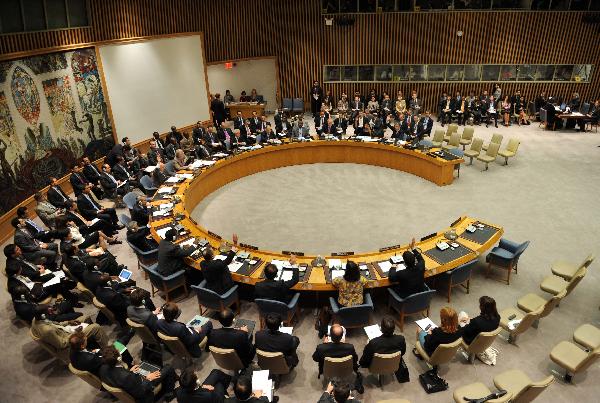What's new with UN Security Council Iran sanctions
The UN Security Council on Wednesday approved additional sanctions against Iran for failing to cooperate with the International Atomic Energy Agency (IAEA) on its nuclear development program.
The new measure, touted as "stronger," was approved 12-2 with Lebanon abstaining. Brazil and Turkey voted against the sanctions measure.
The two dissenting nations had agreed with Iran last month on a nuclear fuel swap to provide Tehran with enriched uranium for research and medical programs. The plan was developed in a bid to head off the very sanctions approved Wednesday.
Iran maintains its nuclear research program is strictly for peaceful uses while many nations fear it is really designed to produce a nuclear weapon.
The nuclear Non-Proliferation Treaty, of which Tehran is a signatory, guarantees members the right to explore the peaceful uses of nuclear power. But, Iran's history of hiding a nuclear program in the past, its failure to cooperate with the IAEA and its development of long-range missiles capable of carrying a nuclear weapon fueled the nuclear weapon fears and led to the resolution.
A spokesman for UN Secretary-General Ban Ki-moon said in a statement he "has consistently stressed the importance for Iran to fully comply with all relevant Security Council resolutions and to cooperate fully with the IAEA to resolve all outstanding issues. These are the essential steps to restore the international community's confidence in the exclusively peaceful purpose of Iran 's nuclear program."
"The secretary-general continues to support a comprehensive and negotiated political solution to this issue" and called for dialogue and consultations on the matter, the spokesman said.
So, what does this fourth round of sanctions have that the others don't have?
U.S. Ambassador Susan Rice told reporters the new measure forbids Iranian investment abroad in nuclear facilities and activities, "bans whole new categories of weapons to be imported into Iran. It bans Iran's ability to engage in any activities related to ballistic missiles that could be capable of launching nuclear weapons."
"It imposes asset freezes on 40 new entities, more than triple the number of any previous resolution," she said. "It imposes sweeping new restrictions on financial activities, banking activities, including correspondent banking, including insurance and reinsurance that could contribute to Iran's nuclear or proliferation activities."
 0
0 







